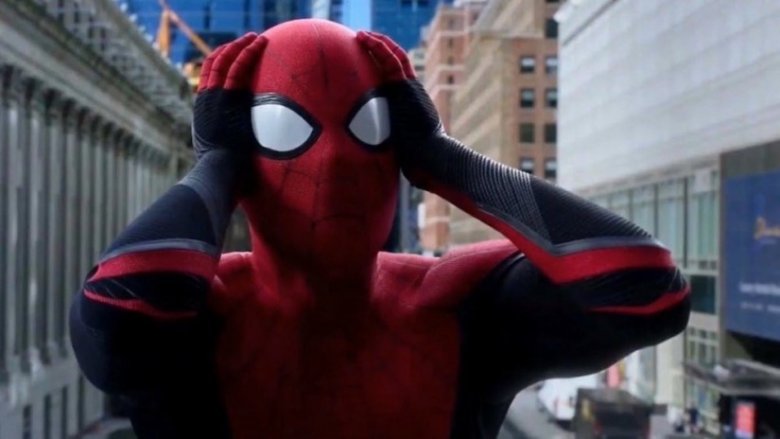Sony Breaks Silence On Spider-Man Split With Marvel
Shots have been fired... or maybe, webs have been slung?
Marvel fans had their worst fears realized on August 20, when it came to light that Disney and Sony couldn't come to an agreement to keep Spider-Man in the Marvel Cinematic Universe in upcoming releases. After Sony-produced films like 2007's Spider-Man 3 and 2014's The Amazing Spider-Man 2 failed to truly capture the essence of the web-slinger, and in light of just how popular and successful Spider-Man has been in the MCU, fans have been quick to denounce the decision. Once the story went public, Sony wasted little time in issuing its response and — surprise, surprise — they are placing the blame on Disney.
An unnamed Sony spokesperson told The Hollywood Reporter that the studio is "disappointed" with the outcome, and confirmed that Marvel Studios president Kevin Feige will no longer produce Spider-Man movies in the future.
"We are disappointed, but respect Disney's decision not to have him continue as a lead producer of our next live-action Spider-Man film. We hope this might change in the future, but understand that the many new responsibilities that Disney has given him — including all their newly added Marvel properties — do not allow time for him to work on IP they do not own," the spokesperson stated.
Apparently, the fallout between the two companies came after Disney suggested it deserved more of the profit from future Spider-Man movies, requesting the standing five percent day-one box office cut to be increased to a 50 percent co-financing stake in the franchise. Obviously, Sony turned that down, wanting the current deal — in which Disney also receives all merchandising revenue — to continue instead.
To be fair to Sony, Feige does seem to have more on his plate than ever before. With the Mouse House launching its streaming platform Disney+ at the end of the year, the head of Marvel Studios is hard at work making sure the numerous superhero offerings that are coming to the platform are up to snuff — not to mention ensuring the success of the various Phase 4 films that are in the works as well.
And with the surprisingly massive box office of Venom and the critical and commercial success of Spider-Man: Into the Spider-Verse, Sony is in a much stronger place with its comic book franchise than it was back when the original deal was struck with Disney in 2015. Sony has had the film rights to Spider-Man since 1999, back when Marvel Comics was doing its best to recover from bankruptcy and resorted to licensing many of its most popular characters to film studios just to stay afloat. Times have changed for both companies, and Sony is evidently standing its ground in a major way.
For his part, Tom Holland — who has played Marvel's wall-crawler in five films since first appearing in 2016's Captain America: Civil War – is contracted to appear as Spider-Man in two more standalone movies for Sony. Of course, Spider-Man solo pictures are not the only thing Sony Pictures has going right now, as the studio is looking to create its own successful franchise of Marvel-based films after Venom did gangbusters at the box office. Previously announced films that are in pre-production at the studio include an Andy Serkis-directed Venom sequel and pic starring Jared Leto as classic Marvel antihero Morbius the Living Vampire. The studio also hasn't been shy about other possible projects to expand its Spider-Man universe. In an interview with Vanity Fair in late 2018, then-series producer Amy Pascal mentioned that Sony was interested in reviving the previously shelved Sinister Six film based on the iconic group of Spider-Man villains.
In light of all this news, many questions remain. Can Holland's Peter Parker leave one cinematic universe merely to join another? Are fans of the MCU ready and willing to support Spider-Man outside of Feige's steady and knowledgeable hands? The last truly successful non-animated Spider-Man film Sony produced came over 15 years ago with Sam Raimi's iconic 2004 picture Spider-Man 2. That's an eternity in Hollywood time, but it's possible that time has given Sony perspective and that the studio could put together a team that creates a remarkable piece of filmmaking that blows the box office apart. One thing's for sure: given that superhero films (outside of the faltering X-Men franchise) are a surefire box office draw in Tinseltown, Spider-Man leaving the MCU is a major shift with billion-dollar implications.
It doesn't look like either studio is going to budge on this decision, unfortunately, so fans are going to have to get used to a reality where Peter Parker isn't carrying on the legacy of Tony Stark after all.
